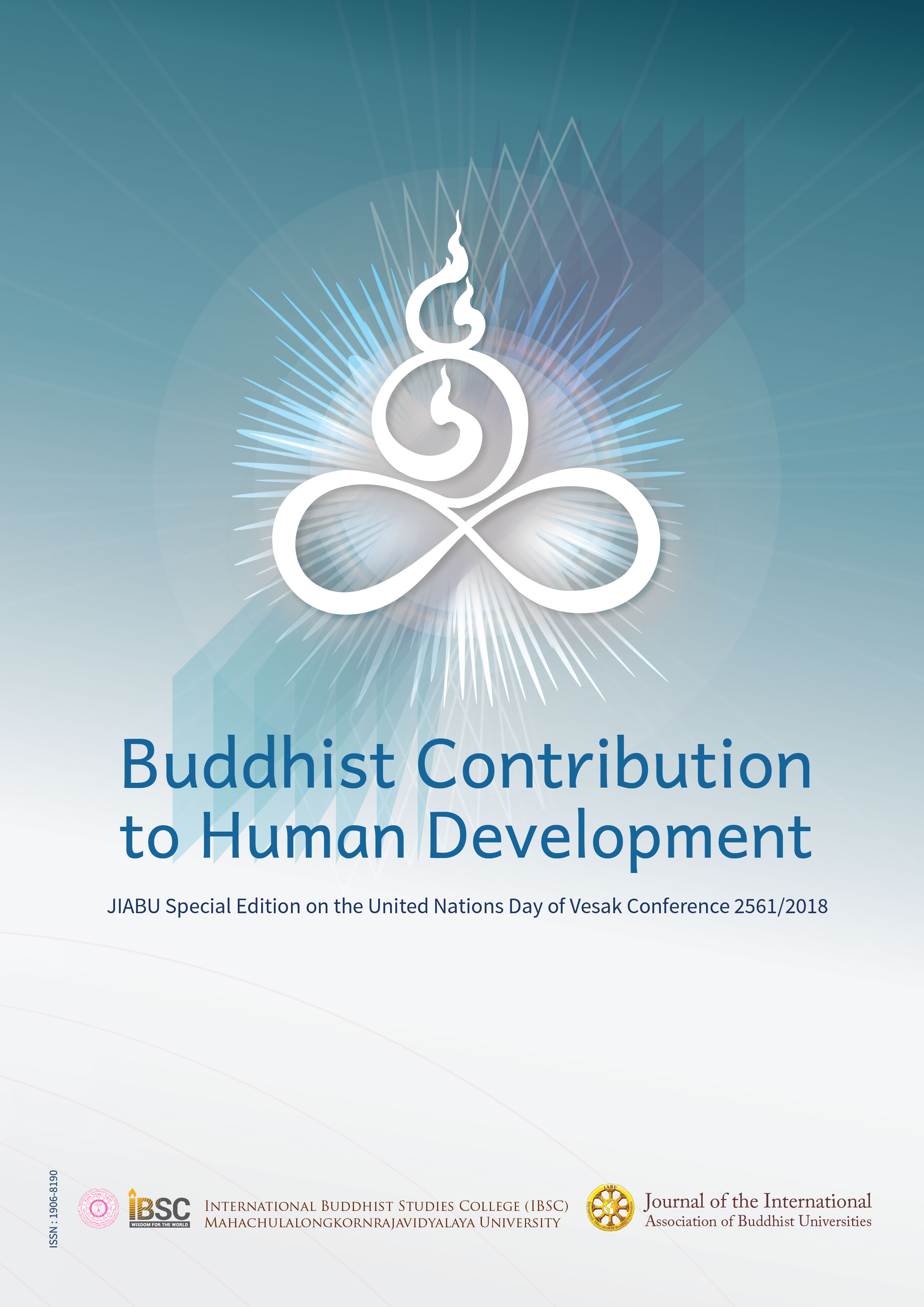Schopenhauer and Buddhist View on Counselor, Morals and Life
Main Article Content
Abstract
Arthur Schopenhauer, a German pessimistic philosopher (1788-1860), proclaimed
that suffering is the direct and immediate feeling of realizing that life, mind, and
knowledge obviously fail here. For him, the morals of mediation insight into the essential
identity, the identity with all sufferings of all beings, is the insight by which the original
egoism is overcome. The Buddhist moral concept suggests the cultivation of loving-kindness
(mettā) and compassion (karunā) and in the same way minimizes the desire and reduces
one’s own ego. The essence of the Buddhist teaching formulated in the first sermon
given by the Buddha as the Four Noble Truths is that unhappiness and unsatisfactoriness
(dukkha) are caused by the ego and four types of clinging (upādāna). The practice of
Buddhism combines the essence of the Four Noble Truths and the practical detailed
explanation of the Eightfold Noble Path divided into three groups: morality, concentration,
and wisdom.
Article Details
Views and opinions expressed in the articles published by The Journal of the International Association of Buddhist Universities (JIABU), are of responsibility by such authors but not the editors and do not necessarily reflect those of the editors.
References
Ibid. p. 326.
MN iii202, Bhikkhu Ñāṇamoli, (1995) The Middle Length Discourses of the Buddha, Kandy: Buddhist Publication Society, pp. 1053-1057.
G.P. Malalasekera, Dictionary of Pāli Proper Names, (1997) Oxford: The Pali Text Society, p. 1229. Subha Sutta the real name for Cūḷa Kamma Vibhaṅga Sutta.
T.W. Rhys Davis, (2004) Pali English Dictionary, Oxford: The Pali Text Society, p. 265. Citta tr. as shine, to be bright, variegated, manifold, beautiful; tasty, sweet, spiced depend on in which the word are be used the meaning change.
Ibid p. 271. Belong to ceta mental, with citta it is to be taken as supplementing, mind and all that belongs to it, mind and mental properties.
Regarding the Pali we have from Rhys Davids and Stede: Savana: (Cp. Vedic.) shelter, house, refuge, protection.
Frank Hoffman, (2013) New York: Pali Buddhism, Routledge, p. 24.
R.J. Hollingdale, (1970) On the Suffering of the World, London: Penguin Books Ltd., pp. 3-5.
Arthur Schopenhauer, (1969) The World as Will and Representation, New York: Dover Publications, Inc., tr. E. F. J. Payne, Vol. I. p.398.


